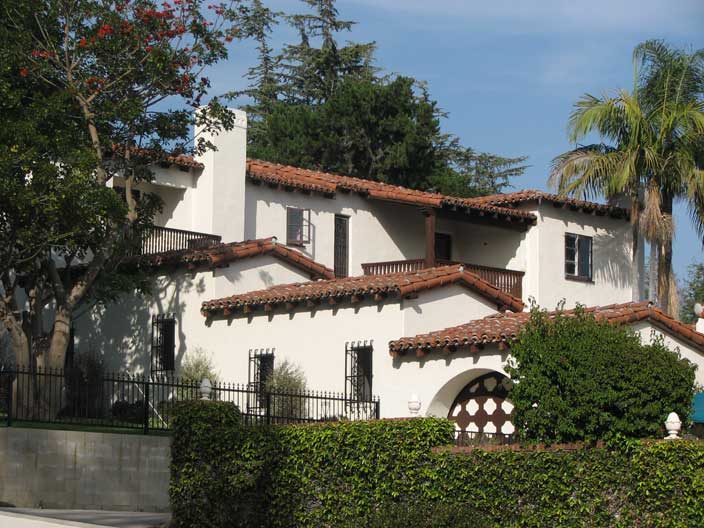
Clifford Clinton Residence, Los Angeles Historic Cultural Monument #997
Built: 1928 Declared: 05/18/2011
The home of Clifford E. Clinton (1900-1969), the founder of Clifton’s Cafeterias, was designed in 1928 by the architect Arthur W. Larson for its original owner-builders. Clinton arrived in Los Angeles from San Francisco in 1933 and bought Boos Brothers Cafeteria on Broadway, renaming it Clifton’s Brookdale Cafeteria. Four years later, Clinton was appointed to the Los Angeles County Grand Jury, where he soon made a name for himself as a foe to the corruption that he saw in the City government. He was soon at odds with Mayor Frank Shaw and Police Chief James E. Davis.
The investigation he took on was to expose the corrupt underbelly of the City. He would eventually bring about the political downfall of the Mayor and police chief, as well as usher in a new City Charter after the successful recall of Shaw in 1938 accompanied by the election of Judge Fletcher Bowron, a Clinton ally to the Mayor’s Office.
Clinton was threatened with jail and a bomb exploded in his kitchen during the corruption investigation. A former LAPD detective he hired was nearly killed by a car bomb planted by a corrupt police captain. Clinton became a major political player well before his 40th birthday and remained such for years, although he lost an election for mayor in 1945.
Born in Sacramento, he went to China with his missionary parents as a child and saw starvation there. He swore he would do all in his power to eradicate hunger. During the Great Depression, he would not turn any diner away from his cafeterias for lack of funds. Each check at his Brookdale Cafeteria on Broadway carried the following notice: IMPORTANT NOTICE: “You may pay what you wish or dine free unless delighted.” Clinton remembered his time in China and the hunger he witnessed there and vowed he would not let it happen here, even when the Great Depression was wreaking havoc on his own business. However, his business survived and grew. After World War II he established an organization to find ways to better feed the world. His Los Feliz home as well as the cafeteria on Broadway remain as monuments to one of our most courageous civic and social reformers.